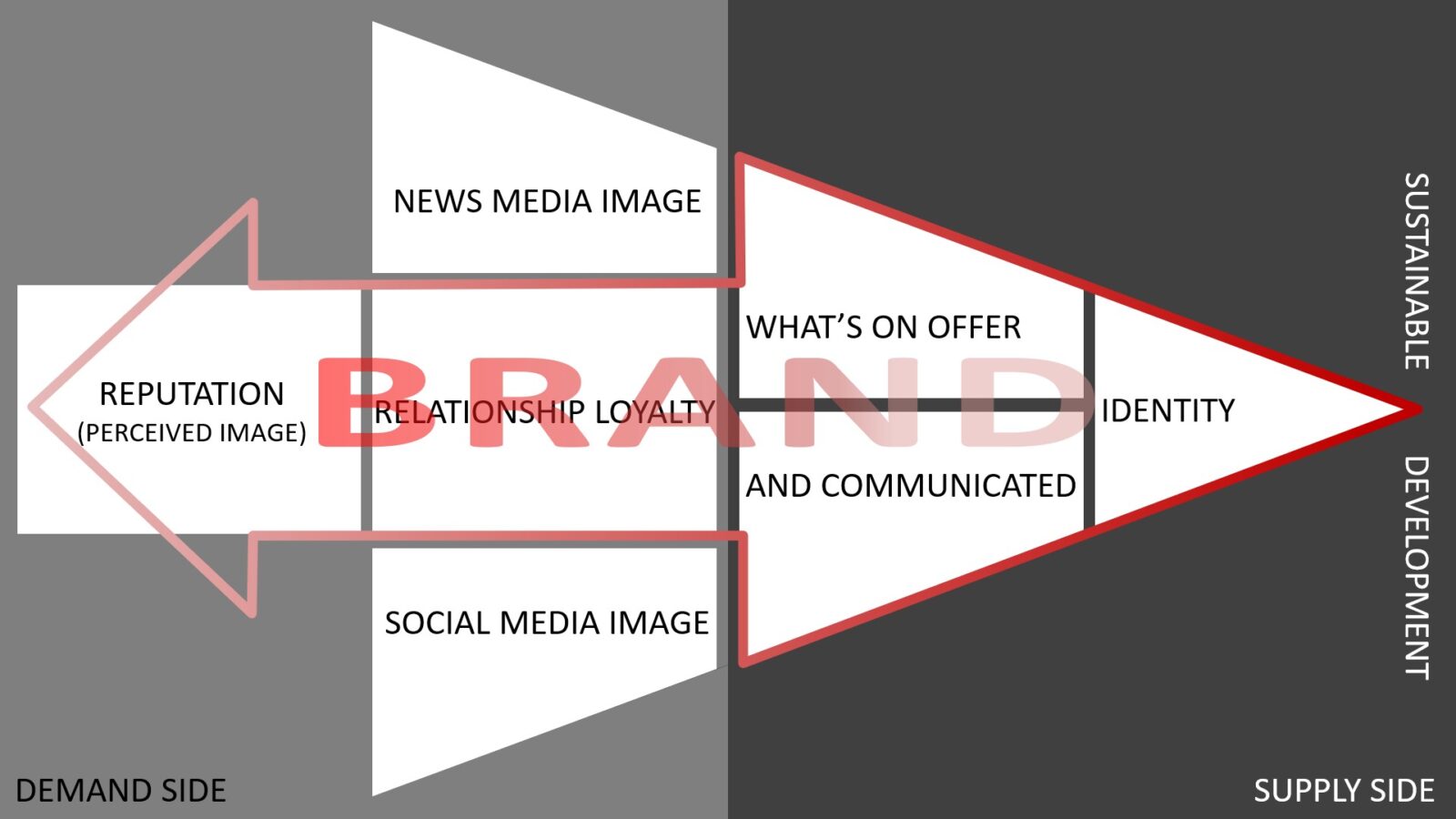Do you agree with my conceptualisations or am I hallucinating? I believe that whether you manage a product brand, corporate brand, city brand, nation brand or your own personal brand, the Sustainable Kinetic Brand Management (SKBM) model explains how it works.
The Sustainable Kinetic Brand Management (SKBM) Model
According to the model brand management is the process of channeling the kinetic friction of development back towards reputational gains. This creates a virtuous cycle. Let me explain.
Individuals, organizations and communities (cities, regions and countries) are thrust towards development by two (supply side) engines: (1) offering something that is of value to others and (2) by communicating that offer.
Identity should be in the driving seat; and with that I mean socio-cultural identity, personality and purpose (not just identity as in visual identity with logos, etc.).
The market notion that what is on offer has meaning, builds trusting relationships.
With that, reputation is the main thrust, powered partly by feedback loops of news and social media image projection.
Insights
Despite popular belief, brand management is not easy yet expensive, but difficult yet cheap (controlling existing energies in the system). The effort that needs to be put in expands with complexity; from personal branding (the individual is in control), to product branding (the product, yet multiple individuals are in control), over corporate branding (the corporation, with multiple products and individuals, is in control) to community/place branding (no-one is in control). In addition, determining which of the elements in the model take priority and how, also depends on the type of brand.
In short, the SKBM model illustrates that brand management is about defining positioning based on purpose; doing the right thing; communicating it; building trusting and loyal relations; and orchestrating media buzz. All this is done in order to reinforce name awareness and positive associations, which will drive the system forward sustainably. Being unreliable or irresponsible damages reputation and hence long-term success. In other words, to remain successful, taking responsibility for sustainability is unavoidable over time.
Does this make sense? Let me know what you think!
